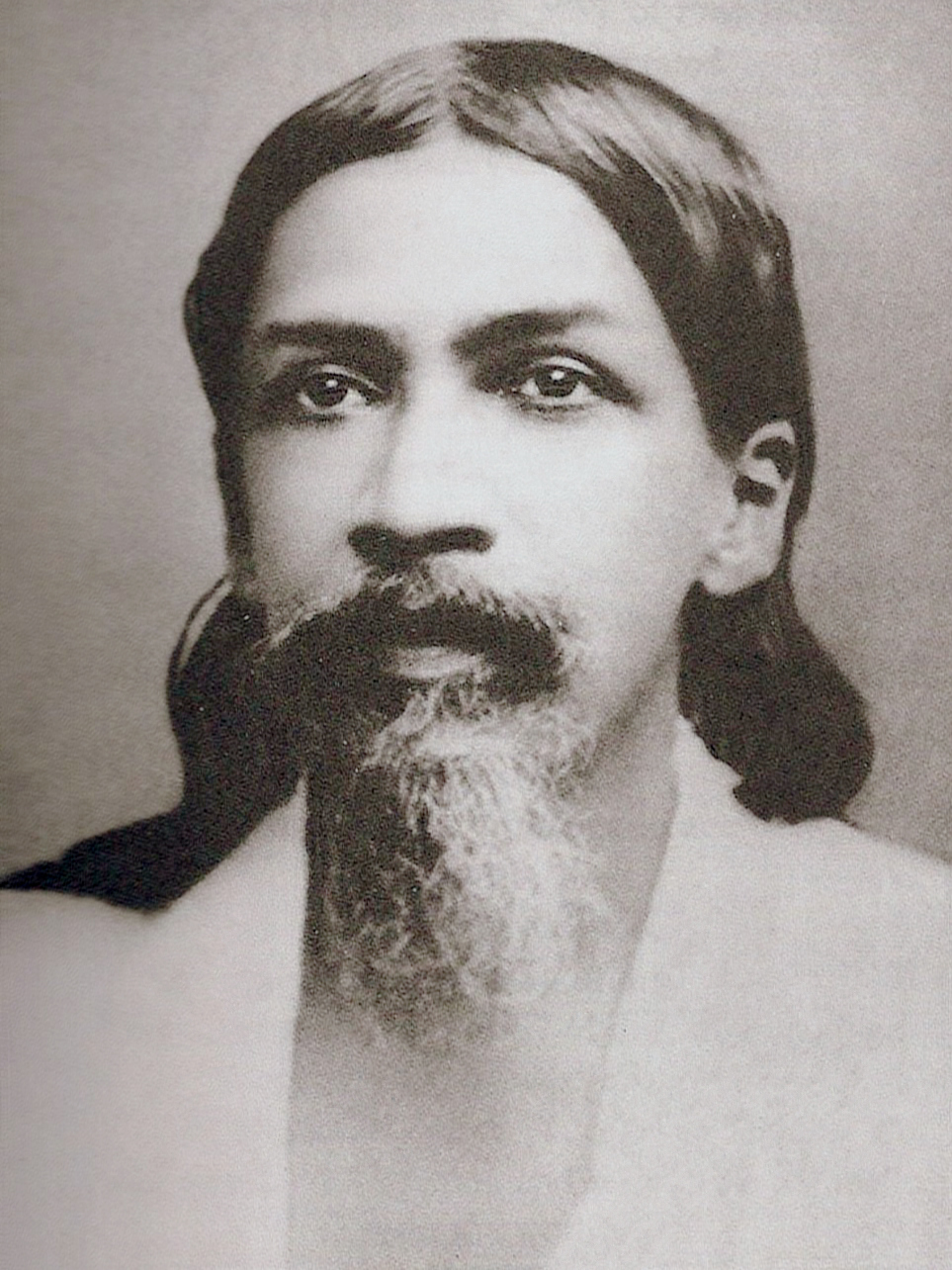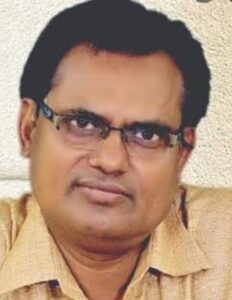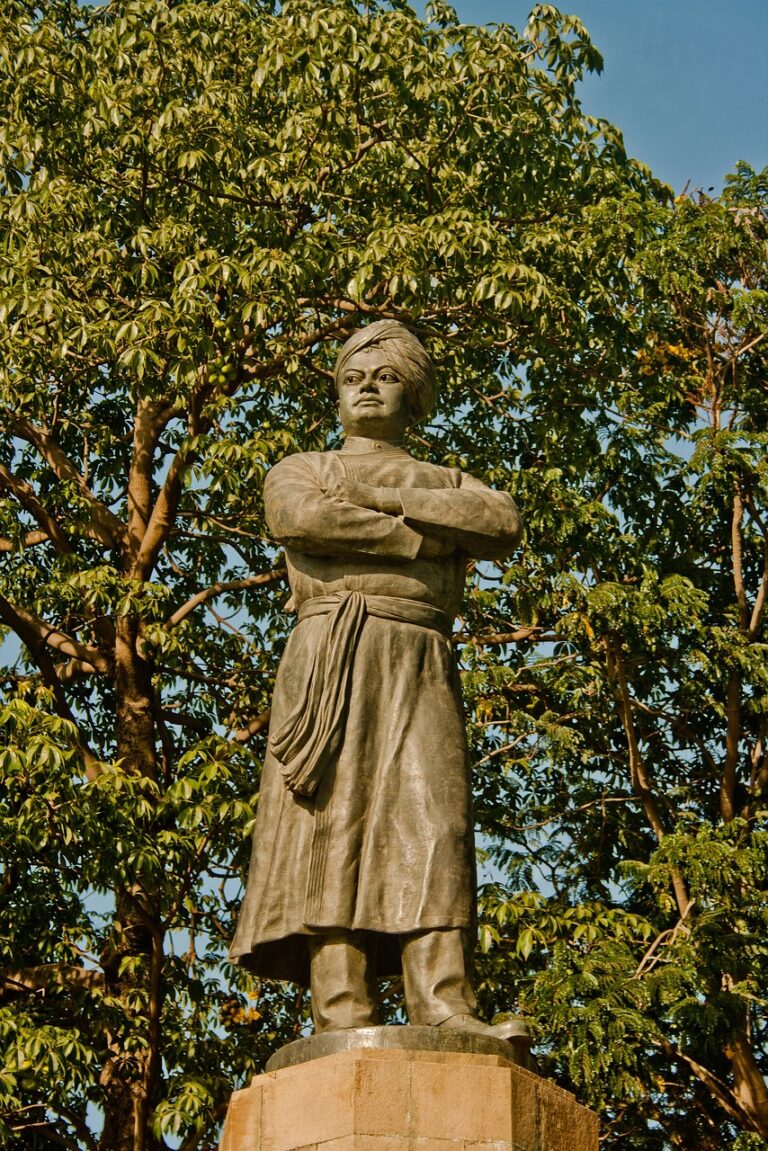
Aurobindo Ghosh
Sri Aurobindo’s father, Dr Krishna Dhan Ghose, an Indian elite, and a government officer, had a deep fascination for everything having the European imprimatur and, almost in the same degree, the corresponding level of hatred for indigenous heritage.
Little wonder then Sri Aurobindo was sent to England when he was barely seven years of age, along with his two elder brothers: Benoy Bhusan Ghose and Manmohan Ghose.
Being a god-gifted talent, Sri Aurobindo evolved himself into a poetic genius since his childhood days. This apart, he learnt French, Latin, Greek and other European languages.
Significantly, even though his personal interest seldom existed, he cleared the Indian Civil Services examination. While on probation, he skipped his horse riding test, as he had lost all his interest in the administrative job. His primary interest was literature and poetry.
Meanwhile, the Gaekwad king of Baroda visited England, and an interview with Sri Aurobindo was organised. This resulted in Gaekwad hiring Sri Aurobindo at the remuneration of rupees two hundred, which he went on tom-tomming that he had an ICS for rupees two hundred. At Baroda, Sri Aurobindo did multiple tasks: apart from administrative work, he did all important drafting, and teaching in Baroda College – first Latin, and then English.
It was here, that Dr KM Munsi, the man who contributed towards the rebuilding of Somnath, became his student. Dr Munsi also came to meet Sri Aurobindo at Pondicherry in 1950, the year he left for his heavenly abode.
Even while working for Gaekwad, Sri Aurobindo contributed towards writing a few articles in Induprakash, which brought him initial recognition. He caught the attention of Bal Gangadhar Tilak, Chittaranjan Das and others.
Later while reviving Bande Matram, after twenty-seven years it was written by Bankim Chandra – Sri Aurobindo rates Bankim Chandra as the greatest novelist of the Bengali renaissance – as the name of the magazine to inflame the nationalistic passion, Bande Matram almost became a household name as a propaganda tool for the nationalists. Later he floated another magazine by the name of Karmayogin.
Also read: Decoding Sri Aurobindo-1: A great mind born in the mortal body
Sri Aurobindo came to be recognised as the top leader of the Nationalist group, which had Tilak and others. Whereas the Moderate group was led by Gopal Krishna Gokhale and Surendranath Banerjee. However, in compliance with the wish of Lord Sri Krishna, who had already assured him that India would be free and that even without him, India would be free as it was His wish, he dutifully took a plunge into Yoga to evolve the supramental mind to govern this world. Arya was the other magazine published with the help of Mrs and Mr Richard. Mira Richard subsequently became the disciple of Sri Aurobindo, who was given the equal status enjoyed by Sri Aurobindo. Later she came to be known as Mother.
Maharshi Sri Aurobindo was earnestly urged to return to spearhead the revolution, yet he desisted from doing so. Especially after the demise of Tilak, there was a strong demand for his return to take the leadership of the Congress Party, yet he refused. While writing a letter to his wife Mrinalini, Sri Aurobindo articulated three madness which afflicted him, scuttling all his personal pleasure to dedicate himself to the altruistic mission of freeing his beloved nation. Yet when Sri Aurobindo took to solitude for meditation, few would believe that he was heeding the divine call. Fewer still believed that he had a definite purpose behind his resorting to solitude.
Sri Aurobindo was on a divine mission; he intended to give a new path and direction to humanity: where men could attain salvation without any asceticism or monasticism which Buddha and Shankaracharya considered as the sine qua non for attaining liberation. But then, halfway into his Sadhana at Pondicherry, he realised the crucial fact: his perception towards the supramental evolution might not be in sync with the multitude who need not necessarily be on the same page as he was.
Nonetheless, Maharshi Sri Aurobindo had sought to provide a new vision to humanity where integral Yoga was considered as indispensable for attaining salvation. Interestingly, this path of integral meditation was made available to one and all. Here, Sri Aurobindo triumphed in uniting humanity despite all sorts of apparent diversity. His enormous interest in Vedas and Upanishads, his translation of Kalidas into English; and his fundamental vision that Hinduism will show the path to humanity–invariably make him a great Yogi on the highest pedestal of Sanatan Dharma.
His belief that money should be judiciously used as a trustee, and not as an owner, is the noble prescription to be followed by humanity to spare itself the imprecation afflicting it today.
This apart, it was Sri Aurobindo who had given the call for complete independence of this country when the Indian National Congress was following the petitionary agenda. Thus after Adi Shankaracharya, the greatest mind ever born in mortal body, was none other than Maharshi Sri Aurobindo, over a millennium. No wonder it is the exalted glory for Sanatan Dharma that no less than Maharshi Sri Aurobindo stood as its flag bearer to show the resplendent path to humanity in such treacherous and deceitful times as this.
…Concluded.
*Author, Academician and a Public Intellectual.





